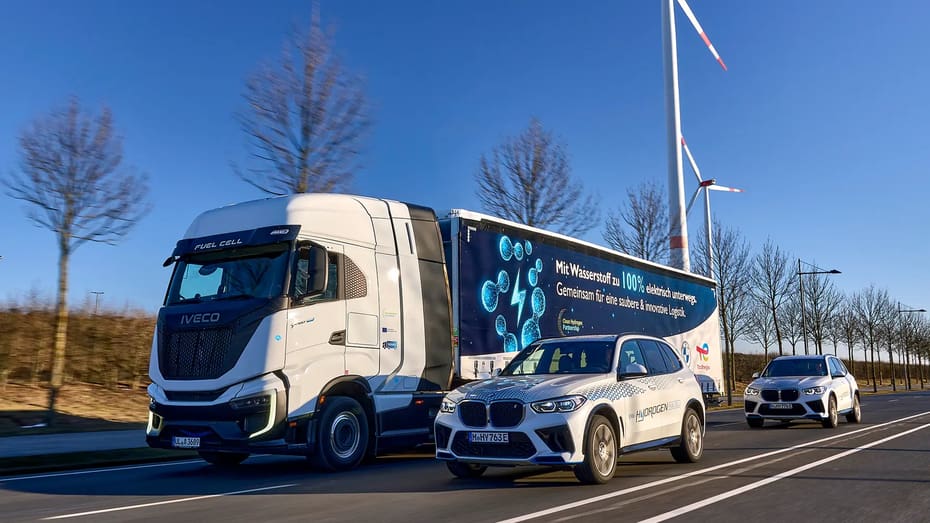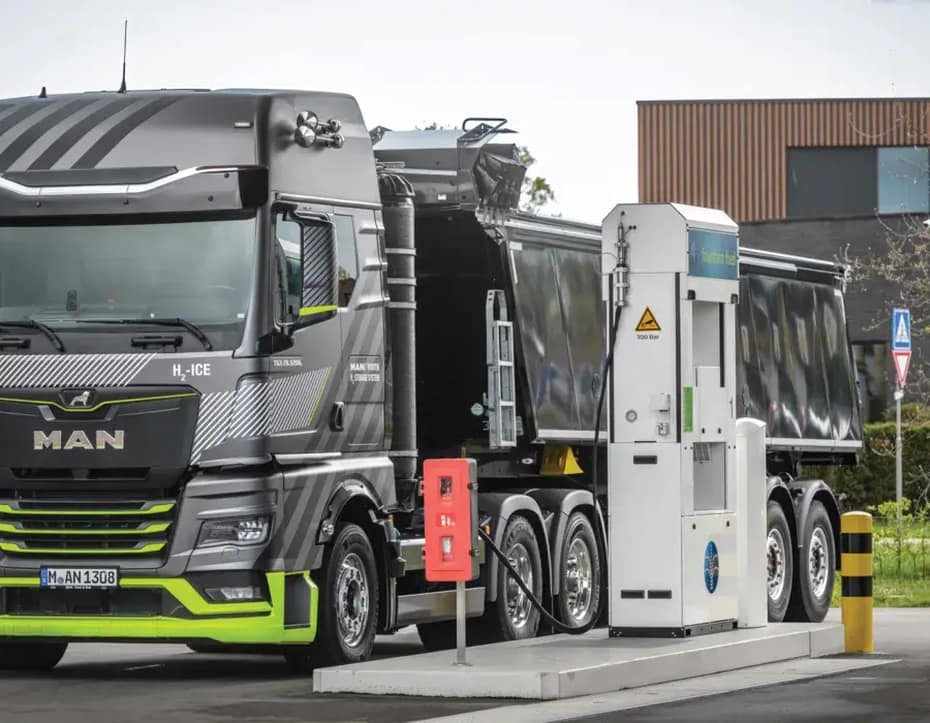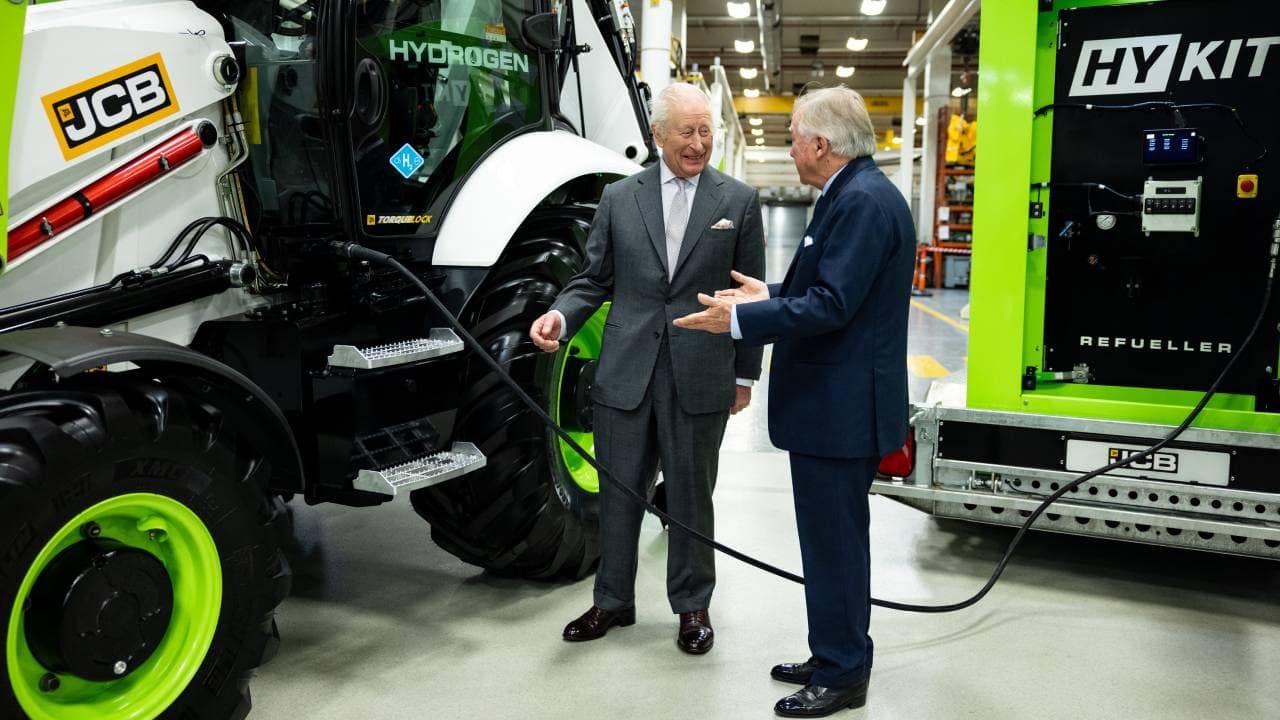Hydrogen vehicles in Europe are moving from pilots to policy-backed rollout. European automakers position fuel-cell vehicles as a complement to battery-electrics—serving long-range, high-utilisation and heavy-duty use cases where charging alone can’t deliver uptime. This page covers market size, OEM strategies, infrastructure and EU policy.

- Dual-track: BEVs for urban/short-haul; hydrogen cars (fuel-cell vehicles) for long-range, high-duty cycles.
- Policy push: AFIR mandates publicly accessible H2 stations every 200 km on TEN-T core corridors by 2030.
- OEM focus: BMW (series-production plan), Daimler Truck (long-haul), VW/Audi (R&D portfolio); Stellantis pause highlights the infra gap.
Market scale: the rise of hydrogen cars in Europe
The European fuel-cell vehicle market grew from $79.5 million (2018) and is projected to exceed $400 million by 2028 (≈38% CAGR). EU programmes have approved nearly €1 billion for renewable hydrogen projects and are funding refuelling through AFIF. Under the Alternative Fuels Infrastructure Regulation (AFIR), member states must deploy publicly accessible hydrogen refuelling stations every 200 km along TEN-T core corridors by 2030, plus at least one per urban node. According to IEA’s Global Hydrogen Review 2024, coordinated demand creation and corridor financing are decisive.
Leading automakers driving hydrogen vehicles in Europe
BMW: long-range complement to BEVs
BMW’s iX5 Hydrogen pilots demonstrated ≈500 km range and 3–4 minute refuelling. With decades of hydrogen R&D and a Toyota partnership, BMW targets series production later this decade, positioning fuel-cell drivetrains for drivers and fleets that need fast turn-times and consistent range.
More: BMW Group hydrogen technology · BMW iX5 Hydrogen
Daimler Truck / Mercedes-Benz: heavy-duty first
Daimler Truck’s GenH2 completed a 1,047 km run on a single fill—underlining hydrogen’s advantage in long-haul payload and uptime. The company urges Europe to accelerate station build-out to remain competitive with Asian deployment.
More: Hydrogen Record Run
Volkswagen Group & Audi: portfolio hedging
While VW pushes BEVs, group R&D maintains hydrogen options—patent work on ceramic-membrane fuel cells and power-to-gas pilots—keeping a flexible path for future fuel-cell models.
Stellantis: strategic pause
Stellantis paused certain European hydrogen programmes in 2025, citing limited refuelling and uneven incentives—highlighting the tight coupling between vehicle deployment and infrastructure.
Infrastructure for hydrogen cars in Europe
As of 2024, Europe had ≈187 public H2 stations (≈46% in Germany). Only about a quarter offered heavy-duty dispensers suitable for trucks. AFIR’s 2030 targets should materially expand coverage; early corridors blend EU funds and OEM-energy JV investment to de-risk utilisation. See the AFIR policy brief and the Clean Hydrogen Observatory.
Hydrogen vs battery-electric: complementary roles
- Turn-time: Refuel in ~3–4 minutes vs hours for charging.
- Range consistency: ~500 km with less temperature sensitivity.
- Mass/payload: Lighter energy systems help trucks/buses where battery mass can reduce payload.
Most European strategies treat BEVs and hydrogen cars as synergistic, not mutually exclusive.
Production timelines & outlook
- BMW: Series-production plan by the late 2020s after iX5 Hydrogen pilots.
- Daimler Truck & Volvo Trucks: Customer pilots mid-decade; commercial ramp late 2020s.
- Renault / Hyvia: Scaling hydrogen LCVs through 2030.
Policy drivers supporting hydrogen cars in Europe
National strategies (e.g., Germany’s multi-billion-euro plan), AFIF funding and AFIR coverage mandates are central to bankability. Stable policy signals are critical to anchor early station utilisation and OEM volume commitments.
Strategic takeaways
- Dual-track de-risking: Keep BEV and hydrogen in portfolio to match duty cycles.
- Corridor logic: Prioritise TEN-T corridors and urban nodes to meet AFIR and fleet needs.
- Supply link: Align with renewable H2 offtake to manage TCO and emissions claims.
Europe’s hydrogen mobility strategy is entering a decisive phase. As policy, OEM scale-up and renewable hydrogen production align, fuel-cell vehicles can bridge the long-haul gap between battery-electric fleets and conventional engines. The next five years will test Europe’s ability to finance corridor coverage and lower green-hydrogen prices below €2/kg—a milestone that would make zero-emission logistics commercially self-sustaining.
Further reading on this site:
Green Steel & the European CBAM ·
Hydrogen Storage Technologies ·
EV & Hydrogen Slowdowns 2025


